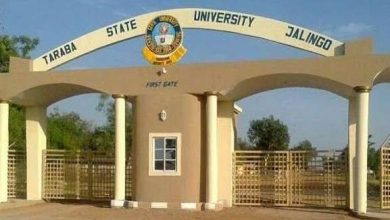Best Universities to Study Geology in Nigeria
Best Universities to Study Geology in Nigeria

Below are the best universities to study geology
1. University of Ibadan
The University of Ibadan should be at the top of your list for studying geology in Nigeria. Founded in 1948, it’s the oldest university in the country and has a world-class geology department.
You’ll have access to state-of-the-art labs and research facilities. The university has close ties to the Nigerian Geological Survey Agency, so you’ll have opportunities for internships and field work. You can join the Geology Students Association to network and find mentors.
UI offers bachelor’s, master’s, and PhD programs in geology, geophysics, hydrogeology, and environmental geosciences. The curriculum covers everything from mineralogy and petrology to geochemistry and geomorphology. You’ll study geological mapping, resource evaluation methods, and the latest technologies like GIS and remote sensing.
Whether you want to work in the mining industry, pursue a career as an educator, or conduct high-level research, UI has the programs and opportunities to launch you into an exciting career as a geologist. Their accomplished alumni are working in over 20 countries.
READ ALSO: The Best universities to study Petroleum and Gas Engineering in Nigeria
2. Ahmadu Bello University
Ahmadu Bello University is one of the top schools in Nigeria for studying geology and earth sciences. Established in 1962, ABU has a long history of excellence in geology education and research.
ABU’s Department of Geology offers undergraduate and graduate degrees in geology, geophysics, and geological engineering. The geology program covers mineralogy, petrology, stratigraphy, and structural geology to give you a solid foundation in the field.
ABU has state-of-the-art facilities, from well-equipped labs and classrooms to an extensive geology museum and library. The faculty are highly qualified, with many professors holding PhDs from top international universities.
Whether you want to study geology at the undergraduate, masters or PhD level, ABU has a program for you. Graduates from the department are highly employable in Nigeria’s mining, oil and gas, groundwater, and natural resources sectors.
With its long history of excellence, strong faculty, and ideal location for field work, ABU deserves its reputation as one of the top schools for geology in West Africa. If you’re looking for a rewarding career as a geologist, Ahmadu Bello University is an ideal place to start.
3. University of Nigeria, Nsukka
The University of Nigeria, Nsukka (UNN) has excellent facilities for geology students.
An important part of any geology program are field trips. UNN organizes frequent field excursions to areas of geological interest around Nigeria. Students explore different rock formations and terrain, observe natural phenomena, and collect samples. These trips supplement classroom learning and provide opportunities for discovery.
The geology department at UNN has experienced lecturers with advanced degrees in geology, geophysics, mineralogy, and related fields. Students learn from knowledgeable instructors who share their expertise and passion for the subject matter.
UNN helps prepare students for careers as geologists, geophysicists, and geoscience technicians. The university has a Center for Career Development and Capacity Building that provides career counseling, hosts job fairs, and helps students find internship opportunities. Graduates of the geology program are employed in the oil and gas industry, mining companies, research institutions, and government agencies.
UNN deserves its place among the top universities for geology in Nigeria due to its modern facilities, field learning opportunities, qualified staff, and career support services for students. Aspiring geologists will gain a solid foundation in the discipline at this prestigious higher institution.
Conclusion
Field excursions, also known as geological field trips or field schools, are an important part of learning geology. They provide valuable opportunities for students to gain hands-on experience studying rock formations and geological features in the field.
READ ALSO: Best Universities to Study Statistics in Nigeria
FAQ’s
Below are a few of the most frequently asked ones:
1 What degree programs are offered for geology?
Universities in Nigeria offer bachelor’s, master’s and doctoral degrees in geology. The most common are B.Sc. in Geology and M.Sc. in Geology. Some schools also offer specializations like geophysics, geochemistry, hydrogeology, petroleum geology, etc.
2. What career opportunities are there for geologists in Nigeria?
Geologists in Nigeria can find work in oil and gas companies, mining companies, groundwater exploration firms, teaching and research institutes, government agencies like NGSA, and as consultants. Geology graduates are in high demand in Nigeria due to the importance of the oil industry.
3. What is the admission process for geology programs?
Admission to geology programs in Nigeria typically requires meeting the general university admission requirements like a minimum cut-off point in science subjects, sitting an entrance exam like UTME, and sometimes a departmental screening. Strong grades in math, physics, chemistry and biology at the secondary school level are preferred.
4. What is the typical course structure for a geology degree?
Geology degrees in Nigeria usually take 4 years (B.Sc.) or 2 years (M.Sc.) to complete. Courses cover topics like mineralogy, petrology, structural geology, geophysics, geochemistry, sedimentology, hydrogeology, geomorphology, petroleum geology, and field geology. Programs typically include classroom lectures, lab components, seminars, projects, internships and a final thesis.









